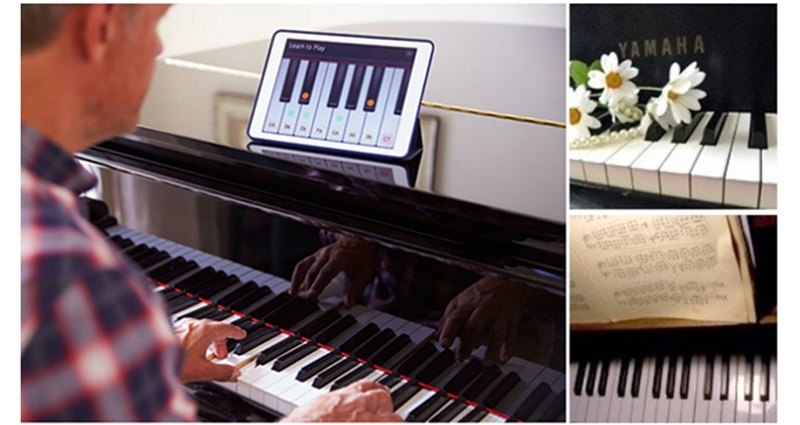
Learn to Play Piano (for beginners and intermediate levels): Its easier than you think and can be done at home. Here’s the how-to, various methods, techniques, & helpful resources. There are various teaching methods available today to learn to play the piano; it’s now easier & faster than ever before and you really don’t have to be completely dependent on a teacher to play the piano.
Introduction
Learning to play a musical instrument requires time and commitment, but the benefit it offers makes it well worth the time and effort.
Students (and their parents) usually have some apprehensions about taking piano lessons; some of which are genuine whereas the others are just myths that have just been heard from somewhere.
- A lot of adults want to learn but they doubt their abilities
- college-going kids (adolescents) are worried about sounding awful in the beginning (worrying what others would think).
- Parents, on the other hand, are worried their kids will quit midway once they have started taking lessons.
There are so many, who wish to learn to play this beautiful instrument but never actually manage to get started, for various reasons. Some think that they are too old, some have no time, some think its difficult, some are busy thinking of shortcuts to learn this instrument.
These apprehensions usually arise because many families do not have any musicians at home; they do not have anybody to guide them through the learning process. Procrastination is also a factor for many ‘wannabe’ learners.
Learning to play the piano is similar to learning any other art, and with regular practice, it can be learned.
While mastering a craft can take years, it’s a lot easier to get started and learn the basics well (for beginners), assuming you are willing to practice half an hour daily for a few months. In fact, if you practice regularly, you should be able to play simple songs much earlier.
The Piano is a Popular Instrument
Learning to play the piano is such a wonderful skill to have. It is really an amazing investment of your time, and you’ll never regret it. It is one of the more fulfilling things that you will do in your life that will also serve as a source of enjoyment and relaxation.
The good thing about the piano is that it helps build a solid music foundation, which helps you become a better musician, and also makes it easier to learn to play other instruments (if you wish to).
Read: Importance of piano in music studies
For many students, there’s something, some event that triggers the desire in them to play a particular instrument.
It could be a music sequence from any of your childhood favorite movie, or your favorite music track, or you just happen to see a great performer and you are just mesmerized by what you see.
That gets your attention and kindle that desire from within. It is then that you are ready to take on the challenge, and it is when learning really starts becoming fun.
You will sit down at the piano for hours practicing, memorizing, & honing your skills, and within weeks or few months the results will be here for you to see.
Also Read: Music instrument and your personality
.Does It Take Long to Learn to Play the Piano?
It depends on the person, your teaching methods, and the time you spend. But it is important to take the first step, which is to get started.
When you start taking lessons, you will hear more of music, you will see more youtube videos, you will see more performers playing the piano, you will go for concerts, and so on.
However, if you are expecting that as a novice you will just take a few days of lessons and then one fine day you will wake up with the ability to play all your favorite songs, that is definitely not going to happen.
Many students ask me ‘how to learn piano in a day?’. Is it really possible?
Well, the only thing that I tell them is that its a myth. Even if you’re able to learn to play a nursery rhyme, you can’t say that you know to play the piano. Can you?
So, before you get into the details like what books to buy or which teacher to go to, it is important that you set your expectations correct regarding the timeframe it takes to learn.
This is not like learning to swim or learning to ride a bike where you could be up and running in probably a month’s time. If you have not learned any musical instrument before, it is quite possible that you may get disappointed with the time it takes to learn to play the piano.
So how much time does it take to learn to play the piano/keyboard?
Well, it depends on what level you want to reach, but here are some indications.
- Within 6 months you should be able to play most of the nursery rhymes and simple tunes.
- In a year’s time, maybe some of your favorite songs.
- In 2 years, probably all your favorite songs.
- In 5 years time you should be able to play in various musical styles, should be able to recognize and play most of the chords, and should be able to improvise.
- 10 years and more, you can become a professional.
There are several learning courses out there, to woo you with their “learn quickly” methods, but you need to be practical.
Learning to play music by ear is helpful and important for any current or inspiring musician, but then that should not be your only focus. There are many courses out there that will try to tell you that learning to play the piano by ear is the only way to get started. However, there are many who have learned how to play the piano using sheet music, and play with good expressions.
Also, being able to play just the melody part is easier, but learning how to harmonize it with chords takes time.
So, if you want to learn to play piano, you must be dedicated and willing to put in the hours. And most importantly, you need to start!
What is the Right Age to Start?
Whenever you’re ready! That’s about it actually!
If you are very old, as long as you still have a sharp memory and can hit the pedal, you can learn piano.
If you are a kid, and have developed fingers, you can start learning piano.
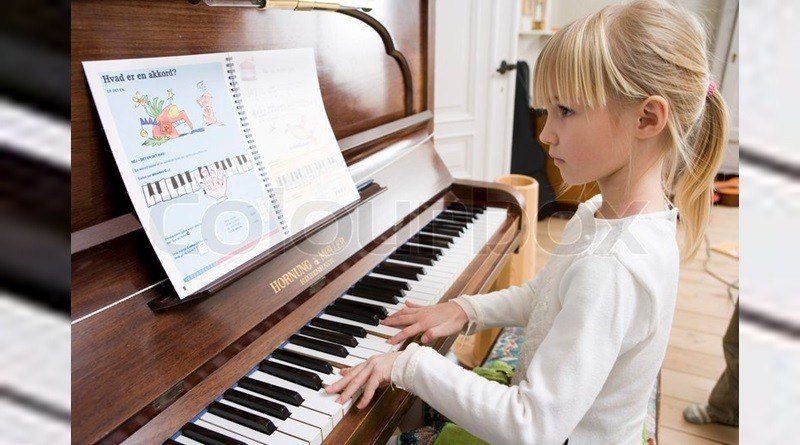
Learning piano at a young age though has several advantages as the young ones are fast-learners and they have that enthusiasm to learn new things.
Children can start taking lessons when they are about 6 years old. Kids with some sort of musical background in their family may be able to pick up things a couple of years earlier as well.
Various Piano Learning Methods to Get Started
There are various piano learning methods available to students and the appropriate method will vary depending on whether you are a kid or an adult who wants to get started, whether you are an intermediate level player who wants to improve his/her sight-reading or is looking for ear training.
Community College
It also depends on where you are taking the lessons from. You can definitely go to a community college and take a short term course, lasting about a few months. But then, it is quite possible that there could be many students there, which means that the pace of learning could be slow.
You will end up learning the basics, some triads and so on, but probably not much that you can play the songs on your own. It is also quite possible that may have already known how to play those basics. What you really need in that case is a method that teaches you how to play open position chords, more songs where you can use those chord positions, which will allow you to play modern-sounding chords right away and that too with both hands.
Playing by Ear
Besides, there are also several ways to learn, one such way being to play the piano by ear. There are many musicians who can play the piano without knowing much of music theory. A bit of caution here! You really don’t have to take it literally. It is most likely that those musicians did not have access to proper learning resources and hence they figured out on their own how to play the instrument. With so much information available today, you at least need to know the basics of music theory before you decide to take the play be ear route to learning.
Traditional Route
There are some teachers who take the classical route to teach, which means those courses for piano require years and years of study. That is a well documented fact. If you want to play the classics, you should expect to spend a few years learning. There are several students who go that route, mostly because they’re not aware of the alternatives. And the end result is that they either give up or feel that piano is a tough instrument to learn.
However, not everybody is interested in playing classical, though it is important to know how to play in that style. What is really required is a well rounded course that starts with the basics and gives you a basic idea of how to play in the various styles of music. There are definitely better alternative ways to play piano, some of them designed in such a way that you can just sit down and play off the top of your head.
Videos
Go to your local library and hire instructional videos. If not the Piano, at least you should get hold of an instructional video for the electronic keyboard. Grab it! The basics of both the instruments are the same and will help you a lot initially. You’ll make good progress in very little time. You can follow it up by going through YouTube videos as well (its a bit challenging to find the good ones though).
You will find several video lessons here if you who want to learn how to play piano. And yes, it’s free! We feel that people across the globe deserve a chance to learn this international language and music is anyways such a wonderful skill to have.
Piano Courses / Method Books
In case you want to try learning on your own, without the help of a teacher, get a piano course (more effective) or a method book (cheaper). If you get a method book, make sure it comes with a CD, containing the exercises and lessons. Most of the method books have a selection of books ranging from the primer to the advanced levels.
Also Read: Best Piano Books of all time.
Teacher
If you think you’re someone who needs someone to push you all the time, when it comes to learning a new skill, get yourself a tutor.Though you may not learn faster, your progress will be monitored and there will be someone pushing you to do well all the time.
Besides, you can gain a lot from the personal experiences of your teacher, which can be handy for the intermediate level players.Private lessons can be good, but expensive, and won’t offer you flexibility in terms of timings of the lessons. Self-help options are available in plenty so you may try them as well.
How to Play Piano the Right Way with this Piano Software
Self Learning
Given the quality of learning courses available nowadays, you can even learn to play piano at home.
That’s right! You just need a good computer and you’re good to go!
The high-quality video lessons show you everything you need to know to start learning to play the piano. This is one of the most popular learning methods used by students nowadays.
The various online courses and programs available nowadays are packaged attractively, are fun to use and very interactive so that the piano lessons are easy to absorb.
Regular Practice is the Key
Here are useful tips & suggestions on how to learn to play the piano effectively, even if you’re an absolute beginner. These proven steps will help you learn to play the piano better, and faster too.
Practice daily
Very important as you begin your quest on how to play the piano as a beginner! Make sure you stick to some fixed time of the day, even if it is for half an hour. That way it becomes a habit (Oh…and do it for at least 21 days if you want to make it a habit). And do not rush to play songs; do finger exercises as well!
Practice More Frequently This works quite well in the initial stages. Rather than sitting at the piano for a couple of hours (most do it when they have a new piano at home), try to break it into shorter sessions and play more frequently.
Move Up Gradually
From time to time you will be tempted to play your favorite songs. Don’t try too hard if you are not able to play those songs since you may not be ready for those yet. Stick to the easier songs, practice regularly and then try it again in a couple of month’s time.
Break It Down
Everything seems a bit difficult initially. So if you find a piece of music daunting, break it down. Learn those smaller parts and finally play them all together.
Read: How to learn difficult / tough music pieces quickly
Correct Technique & Advanced Skills
It is important to remember that most beginners try to play things a lot faster, and their fingers keep slipping because of that. They easily get impressed by someone who is playing much faster, and fail to understand that it is better to play slowly with expressions, rather than play fast in a mechanical manner. Most children want to play the piano fast and that is definitely a bad move. You have to make them realize that and re-condition their fingering technique.
So if you are self-learning this is something to keep in mind as you practice. Using the suggested/correct fingering techniques is of utmost importance as a beginner.
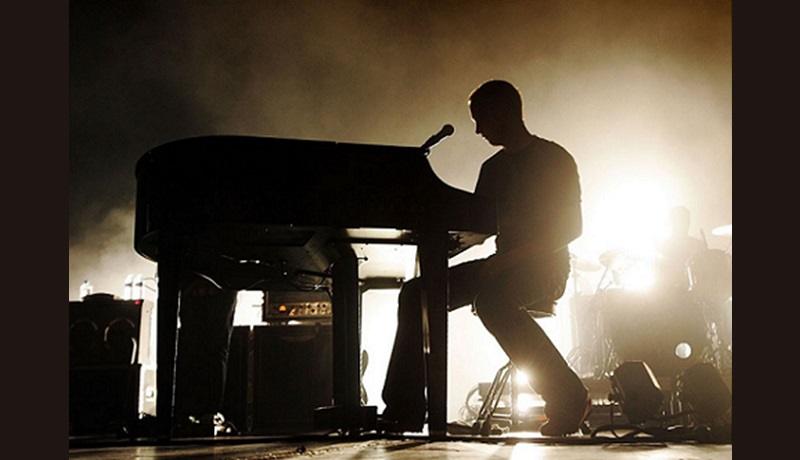
Besides, If you’re already past the beginner stage, you’ll need to learn more techniques, otherwise the simple songs will become too boring for you.
Here’s more resources on developing your piano technique.
Is Growth Guaranteed?
After a few years of practice, your growth will depend on how you plan to grow. Just because you spend 5 years or 10 years playing the piano does not mean you will reach high levels of proficiency.You will need to constantly assess your playing and improve in the weak areas. In case you intend to become a professional, you will need to plan your career. You will need to decide what type of songs you want to play and then build a repertoire of songs in those areas.
You Need a Piano
You need a keyboard instrument in order to learn. But you really don’t have to invest in an expensive instrument right from the beginning.
So forget that acoustic piano – its expensive and requires regular maintenance.
Its perfectly alright to learn to play a digital piano, or even a keyboard to begin with. Depending on how you progress with your skills, you should consider upgrading your keyboard instrument in a few years time.
What if you don’t want to buy?
Check out your church or the nearest library and see if they have a piano that you can practice on. Some libraries allow you to play by the hour (they charge a small amount).
How about asking your friend, who probably has not used his/her keyboard for a long time, to lend it to you for a month or so?
Worst case, you can also play the piano online till the time you save money to get yourself a keyboard.
So you can still get started even if you don’t have a piano at home. There are plenty of resources out there that will give you the opportunity to play piano.
Learning piano nowadays is much more flexible and doesn’t have to follow the traditional formal training methods. In fact, even before you get yourself a piano, you can know the names of the notes and how to hit the keys.
Just Get Started
Once you make up your mind to learn piano, you just get started. Remember, everybody who plays the piano effortlessly had to start from zero.
The good thing is that there are so many resources available, some of them free, that in terms of having access to the materials, you should not face any problem learning to play a piano. Nowadays, you really don’t need a private teacher to show you how to learn to play. You can do it on your own (at home), and that way you can even save on the high costs of a private teacher.
For many, lessons with a piano teacher is a deterrent; most are reluctant to spend money as they’re not sure what’s in store for them. Many students are also not comfortable asking questions to any music teacher nor do they feel comfortable asking them to give a demo of their playing.
That leaves several questions unanswered in their minds.
Besides, for many, it also means spending a lot of time commuting to the teacher’s place to get piano lessons. That is where alternative methods such as learning from software/dvd courses/apps come in handy.
However, at the end of the day, it’s your choice. Select a method that you’re comfortable with.
However, it is important to know that the first few months of learning and getting into a practice routine can be tough, and that is where you really need to be determined. Most of the time, it is within this duration that a lot of people quit.
You also must be eager to learn, be it the piano or any other musical instrument. You must have a strong desire and also the right mindset about learning. If it’s forced on you, then its quite likely that you may quit soon.
Also, if you think you’re going to learn overnight, it’s not going to happen, so you also need to have patience.
So, the only thing that you actually need to do, is to get started, just take the first step and things will fall in its place.
More Piano Tips – For Students and Parents
For those of you who are past the beginner stage, remember that there is always more to be learned, and if you are really passionate about music, then you will always strive for more knowledge. It could be about anything related to music, songwriting, music gear or music technology.
Most of the suggestions and piano FAQ provided here are generic in nature and are aimed at piano students, children as well as adults, teachers and parents.
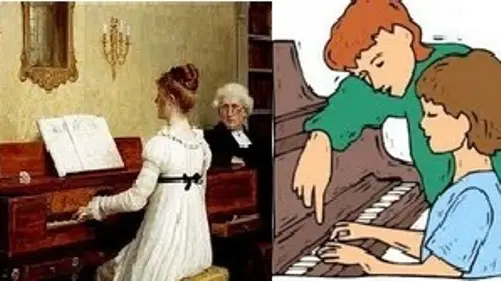
Piano Tips: Suggestions For Students/Parents
This is for both… the piano student as well as for their parents!
Most of the common queries, apprehensions, and misconceptions around piano lessons have been assembled and answered here.
You will find all the help & information that is needed to learn to play the piano.
You can make optimum use of your time and resources once you start taking piano lessons, by following the piano tips suggested in these articles.
- Common Concerns / Apprehensions / Misconceptions about taking Lessons
- Your role as a Parent of a Piano Student!
- Suggestions for Adult Piano Students
- Piano Practice Tips & Techniques
Piano Tips: For The Performing Pianist
This section is for the advanced piano learner, who has already started performing or will soon have to perform for an audience.
Here you will find suggestions on various aspects of performing, and how to go about planning for your performance on the piano.
You will find information that will help you in preparing, planning, memorizing and actually performing on stage!
- Process for Memorizing Music
- How to perform well, deal with Stage Fright
- How to prepare for piano competitions?
Piano Tips: Other Learning Opportunities
As you further your piano learning, you will realize that there is so much to learn. And that learning need not come only from piano books and piano lessons!
You can learn a lot by learning from the experiences of others.
Those “others” could either be piano learners like you…or they could be masters who have spent years and years playing the piano. You can definitely learn a lot by interacting with them.
Here are a few other opportunities for you to expand your piano learning. Go ahead and try those out; widen your perspective!
Learn to Play the Piano – FAQ
Common questions related to learning to play the piano keyboard. Learning to play the piano is a dream for many, but once you buy a keyboard instrument, you should learn in a systematic manner.
Learners who wish to learn to play the piano/keyboard want to know the most efficient methods to improve their skills (techniques, books, resources, etc).
This Piano FAQs section brings together some of the most commonly asked questions on learning to play the piano.
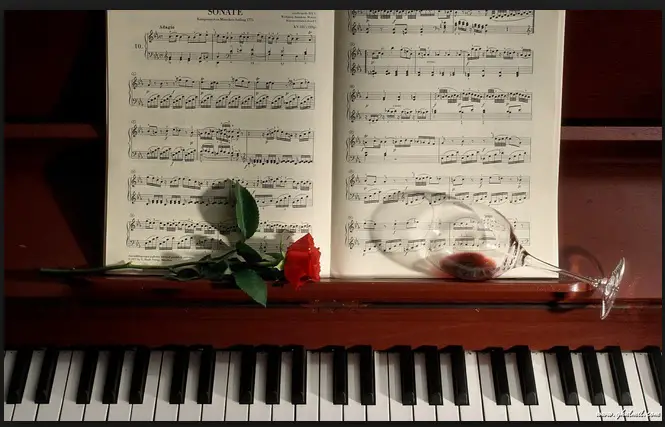
There are several ways to learn the piano – some pick it up on their own from books and DVDs, some go to music schools and some like instructions from a personal teacher. There are others who want to learn but are not sure whether they would be able to do it at their age.
Ques: What is the right age for my kids to start taking piano lessons?
Ans: Your kids can start as early as when they are 4 years old.
Ques: I am an adult aged 50 years. Can I learn the piano at this age? Can I learn the piano without going to a personal teacher?
Ans: You can start taking piano lessons at any age you like, as long as you have the desire and motivation to learn. Learning to play the piano is like learning any other skill and there is no reason why you should not be able to do it.
Read: Keyboard vs Piano lessons
You can definitely start learning the piano from method books and DVDs. In fact, for adults it could be a better way to begin just because of time commitments. You can then switch over to a personal teacher for intermediate/advanced lessons.
Ques: You need to have talent to play the piano. I am not sure if I have it!
Learning the piano is like learning anything else. With efforts and practice, you can definitely play it well. This question should definitely not be holding you back.
If you know people who have given up playing the piano, it is not because they did not have talent but because they were not committed enough.
Ques: You need to take lessons only if you want to play Classical!
You will anyways need lessons to pick up the basics like reading music, scales, harmony, technique, and much more.
This is something you need to know & learn irrespective of what style you play in. Once you know these things, lot of students may be able to make good progress on their own playing in the pop & jazz style but a teacher will definitely help to make that progress much faster.
Having learnt the basics, if you want to pursue some particular style of playing, you may have to change your teacher accordingly.
Ques: How long does it take to learn?
Depends on how far you want to go! At the same time, this is not something which you are going to learn in a few weeks. In six months time, you may probably be able to play only some simple tunes. So you need to set your expectations correctly and be ready to make long term commitment. You will also need to make sure that learning the piano does not get pushed around because of your other activities.
To Conclude
Most beginners easily get discouraged, but it is important to keep going as it does get easier soon if you keep practicing. You will definitely be able to play songs and get there; it just takes time. Software courses, though very effective, will not be able to offer you this sort of encouragement that is needed initially. However, these programs can keep you engaged and challenged, and they are quite cost effective as well. If you consider what private teachers charge for the lessons, these pay for themselves in just a couple of lessons.
Your goal should be to learn as much as possible (am talking about the concepts here) so that you will be able to play music one day, all by yourself. That should really be your long term objective of learning to play the piano.
I firmly believe in the following philosophy, and would encourage you as well to do so.
“Give a man a fish, he will feed himself for a day.
Teach a man HOW to fish, and he will feed himself for a lifetime.”
All the best!
Don’t forget to read reviews of the various learning materials & piano methods, also go through the various piano techniques, and useful resources that you could use to become better at playing this instrument.
Learn to Play Piano the Right Way with this Piano Software
How to Play Piano / Keyboard and Sing at the Same Time

Here are some reasons to learn this skill – playing the piano or keyboard and singing.
- If you can sing and play piano, you are in more demand. If you are old enough to perform in pubs and can play the piano and sing, be ready to get all the adulation irrespective of how you look. You will be a star there or wherever you perform!
- Reduces your dependency on other musician, which means you can really be a one man band (armed with a good arranger keyboard)
- Part of Piano Curriculum – Most schools which teach piano expect you to hum out simple tunes. As part of the examination, you can expect the examiner to play simple tunes and you will be expected to hum it. So this is a skill which will definitely give you a few extra marks.
Sing and Play Separately at First
Remember those days when you were struggling to use both your hands together? You do the same here as well – learn them separately.
Start by singing a cappella (without any instruments) and then work your way to singing along with a pre-recorded piano track. You can then play few simple chords while you focus on your singing technique.
Now, switch the focus to your piano playing, while singing quietly. Once you’re confident with the keys, gradually start combining the two.
Start with Block Chords
Most keyboard players have a hard time initially playing the keyboard/piano and singing at the same time. To start off, try playing only the chords while singing (solid chord only, no arpeggios). As you become more comfortable, try breaking up the chords or do some improvisations.
Start Early
If you have recently started taking piano lessons, then a good habit to develop is to sing along whatever you play on the piano. You may choose to hum or sing the actual words of the song, but just do it. You never know, you may have a hidden skill which you might uncover.
Practicing regularly is the key to become better at anything. Over time, you yourself will be able to figure out what works best.

Effective Ways to Learn for Adults & Seniors
Adults learn differently than children and this applies to piano lessons as well.
Adults also have less time to spare amidst their busy schedules, they require more flexibility. However, they are driven, think while learning, and grasp better. Besides, it is a great time for learning new things due to the easy availability of resources, and the convenience of learning.
- By learning just 3 chords you can play hundreds of songs?
- There are only 12 major keys you can play in, but you only really have to master 2-3 keys to play most popular songs?
- Beethoven’s Fur Elise and the blues song “Summertime” uses the exact same chords for the theme of the song?
- You can use the same chords to play boogie, blues, new age, gospel, pop, rock, jazz, country – anything except classical music? (And even some classics!)
There are just 3 primary chords in any key. Get to know those 3 and you’ve got it. Music is also based on math. Once you understand a thing called the “Circle of 4ths / circle of fifths)” it’s a piece of cake; you will know that the G chord should come after the D7 chord. Apply different rhythms to the same chords, and you have many styles of music; with the very same chords you can play boogie, jazz, rock, pop, gospel, new age, ragtime.
KeytarHQ editorial team includes musicians who write and review products for pianists, keyboardists, guitarists & other musicians. KeytarHQ is the best online resource for information on keyboards, pianos, synths, keytars, guitars and music gear for musicians of all abilities, ages and interests.



Leave a Reply